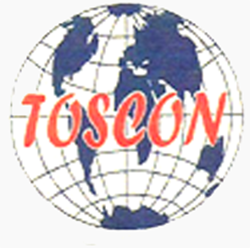
The environmental consequences of rapid industrialization have resulted in countless incidents of land, air and water resources sites being contaminated with toxic materials and other pollutants, threatening humans and ecosystems with serious health risks. More extensive and intensive use of materials and energy has created cumulative pressures on the quality of local, regional and global ecosystems.
Toscon Global works with local and international agencies to ensure that environmental wastes are treated properly prior to discharge and disposal. Before there was a concerted effort to restrict the impact of pollution, environmental management extended little beyond laissez-faire tolerance, tempered by disposal of wastes to avoid disruptive local nuisance conceived of in a short-term perspective. As the pace of industrial activity intensified and the understanding of cumulative effects grew, a pollution control strategies became the dominant approach to environmental management and that is where Toscon Global Views Ltd comes in.
Two specific concepts served as the basis for the control approach: the assimilative capacity concept, which asserts the existence of a specified level of emissions into the environment which does not lead to unacceptable environmental or human health effects and, the principle of control concept, which assumes that environmental damage can be avoided by controlling the manner, time and rate at which pollutants enter the environment.
Under the pollution control approach, we ensure that all attempts to protect the environment have especially relied on isolating contaminants from the environment and using end-of-pipe filters and scrubbers. These solutions have tended to focus on media-specific environmental quality objectives or emission limits, and have been primarily directed at point source discharges into specific environmental media (air, water, soil).

